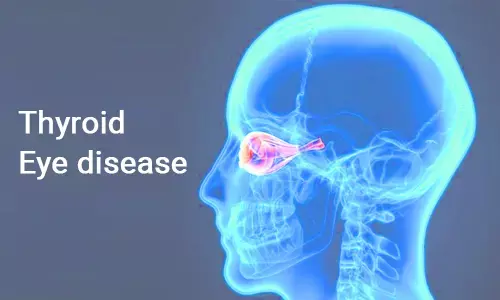- Home
- Medical news & Guidelines
- Anesthesiology
- Cardiology and CTVS
- Critical Care
- Dentistry
- Dermatology
- Diabetes and Endocrinology
- ENT
- Gastroenterology
- Medicine
- Nephrology
- Neurology
- Obstretics-Gynaecology
- Oncology
- Ophthalmology
- Orthopaedics
- Pediatrics-Neonatology
- Psychiatry
- Pulmonology
- Radiology
- Surgery
- Urology
- Laboratory Medicine
- Diet
- Nursing
- Paramedical
- Physiotherapy
- Health news
- Fact Check
- Bone Health Fact Check
- Brain Health Fact Check
- Cancer Related Fact Check
- Child Care Fact Check
- Dental and oral health fact check
- Diabetes and metabolic health fact check
- Diet and Nutrition Fact Check
- Eye and ENT Care Fact Check
- Fitness fact check
- Gut health fact check
- Heart health fact check
- Kidney health fact check
- Medical education fact check
- Men's health fact check
- Respiratory fact check
- Skin and hair care fact check
- Vaccine and Immunization fact check
- Women's health fact check
- AYUSH
- State News
- Andaman and Nicobar Islands
- Andhra Pradesh
- Arunachal Pradesh
- Assam
- Bihar
- Chandigarh
- Chattisgarh
- Dadra and Nagar Haveli
- Daman and Diu
- Delhi
- Goa
- Gujarat
- Haryana
- Himachal Pradesh
- Jammu & Kashmir
- Jharkhand
- Karnataka
- Kerala
- Ladakh
- Lakshadweep
- Madhya Pradesh
- Maharashtra
- Manipur
- Meghalaya
- Mizoram
- Nagaland
- Odisha
- Puducherry
- Punjab
- Rajasthan
- Sikkim
- Tamil Nadu
- Telangana
- Tripura
- Uttar Pradesh
- Uttrakhand
- West Bengal
- Medical Education
- Industry
Teprotumumab improves symptoms and quality of life in thyroid eye disease patients

LOS ANGELES -- Researchers at Cedars-Sinai and at other medical centers nationwide have found that minimally invasive insulin-like growth factor I blocking antibody, teprotumumab leads to improvement in symptoms and quality of life in patients with thyroid eye disease.The study has been published in The New England Journal of Medicine.
Teprotumumab is a fully human monoclonal antibody which blocks the inflammatory autoimmune pathophysiology that underlies thyroid eye disease.
Thyroid eye disease is a rare and vision-threatening autoimmune condition that causes the muscles and fatty tissues behind the eye to become inflamed and enlarged, leading to bulging of the eyes. In addition to the bulging appearance, patients can experience double vision and light sensitivity. The disease can lead to blindness.
"The study demonstrates that medical treatment with teprotumumab is effective at reversing the manifestations of disease, providing new hope for patients," said the study's principal investigator Raymond Douglas, MD, PhD, director of the Orbital and Thyroid Eye Disease Program at Cedars-Sinai.
Patients received the drug intravenously once every week for three weeks over a 21-week period. Results showed:
Patients who were administered teprotumumab experienced effective response in two doses or six weeks of administration.
After 24 weeks, the study showed 83% of people on the drug had measurable reduction in eye bulge versus 10% of those on a placebo.
The overall response rate was 78% among those taking the drug compared to 7% of people taking a placebo.
The new discovery contributed to the fast track drug approval by the U.S. Food and Drug Administration, marketed under the brand name Tepezza, making it the first drug approved for the condition.
"Other than highly invasive surgical procedures, patients with thyroid eye disease had no real treatment alternatives," Douglas said. "This is a medical breakthrough for a very large percentage of the patient population to receive an alternative medical infusion treatment with great results, quickly."
"This treatment has the potential to alter the course of the disease, potentially sparing patients from needing multiple invasive surgeries by providing an alternative, nonsurgical treatment option," said Wiley Chambers, M.D., deputy director of the Division of Transplant and Ophthalmology Products in the FDA's Center for Drug Evaluation and Research.
Dr Kamal Kant Kohli-MBBS, DTCD- a chest specialist with more than 30 years of practice and a flair for writing clinical articles, Dr Kamal Kant Kohli joined Medical Dialogues as a Chief Editor of Medical News. Besides writing articles, as an editor, he proofreads and verifies all the medical content published on Medical Dialogues including those coming from journals, studies,medical conferences,guidelines etc. Email: drkohli@medicaldialogues.in. Contact no. 011-43720751


